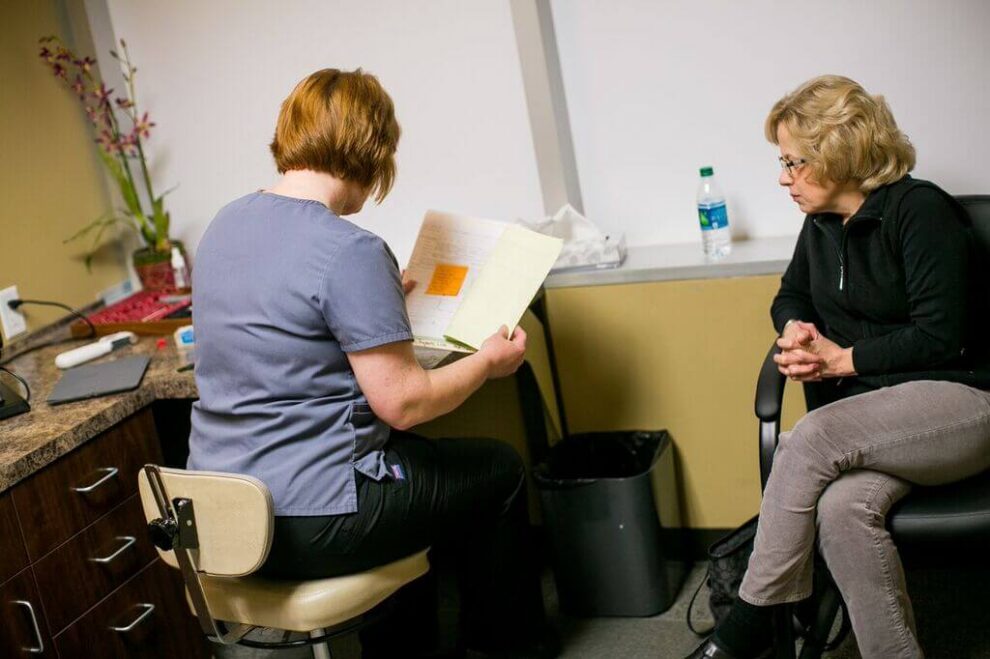Posted by: Kentucky Eye Institute in General Eye Health

Diabetes and Eye Health
Did you know that having diabetes can affect your eyesight? If you do have diabetes, it is important to take certain precautions to ensure that you are staying ahead of potential eye problems before they occur. One way to do this is scheduling an eye exam at least annually, if not every six months. Your Kentucky eye doctor will be able to see warning signs of common eye problems that affect those with diabetes.
There are at least four main eye diseases that are more common if you have diabetes. They are diabetic macular edema, diabetic retinopathy, cataracts, and glaucoma. Over time, diabetes can cause damage to your eye health and include blurry vision, vision loss, or blindness. Diabetes affects your eyes when your blood glucose or your blood sugar level is too high. In the short term, having high blood sugar will not cause damage to your eyes. In fact, when patients are changing diabetic medications, it is normal to experience blurred vision for a few days or weeks. High blood sugar can cause the tissues in the eyes to swell, which is what causes blurred vision. But once your blood sugar level gets back to normal, your vision should return to normal as well!
However, if you are experiencing high blood sugar over an extended period of time, this can cause damage to blood vessels in the eye. Blood vessels that are damaged can potentially cause scarring or intense pressure in the eye which can lead to damaged vision.
Damaged blood vessels can also harm the retina, which can cause a disease like Diabetic Retinopathy. If this disease worsens, it can lead to what is called proliferative diabetic retinopathy which is when vision problems would be a big concern.
The part of your retina that you use for driving and reading is called the macula. Diabetes can lead to swelling in the macula, also known as diabetic macular edema. This can damage sharp vision in this area of the eye, leading to vision loss or blindness in the worse case.
Those with diabetes are more likely to develop common eye conditions like cataracts and glaucoma. Glaucoma causes the loss of peripheral vision, but symptoms could vary depending on the type of glaucoma you have. Cataracts will cause blurred vision and especially poor vision at night. Additionally, while cataracts may be common for older patients, if you have diabetes you are at risk of developing this disease sooner.
The best way to prevent diabetic eye diseases is, of course, taking care of your diabetes in healthy ways. Be sure you have an effective way to manage your high sugar and high blood pressure as well. Not smoking and lowering your cholesterol level are also ways to manage diabetes.
Visit your local eye doctor if you think you are experiencing any symptoms like blurred vision, poor color vision, spotted vision, frequently changing vision or flashes of light.
The best way to manage your eye health with diabetes is having a fully dilated eye exam. Your eye doctor will check your vision as well as the pressure in your eye. Your eye doctor is there to help you manage your diabetes and provide you with preventative steps to help you take control of your eye health. If you’ve recently been diagnosed with diabetes, consider scheduling an eye appointment soon to talk to your doctor about your eye health.
At Kentucky Eye Institute, we understand the concerns you have about your eye health with diabetes. We will help provide preventative steps in your diabetic eye health and we are able to treat diabetic eye diseases with the utmost care. We offer comprehensive eye care throughout the state of Kentucky. Contact us today to schedule an appointment!
.
